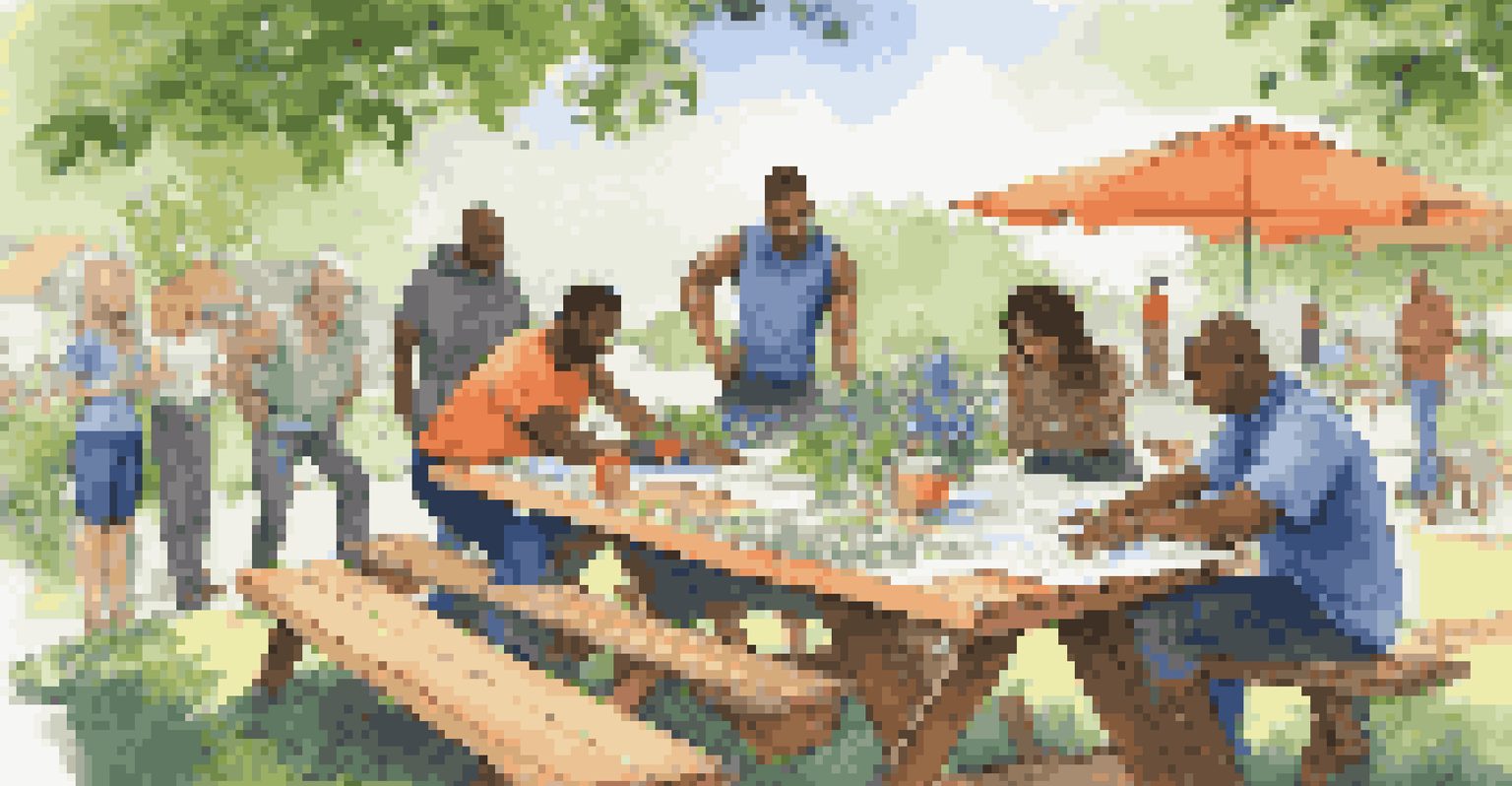Building Strong Relationships Through Soft Skills

Understanding Soft Skills and Their Importance
Soft skills encompass interpersonal skills like communication, empathy, and teamwork. Unlike technical skills, which are easy to quantify, soft skills involve how we interact with others and navigate social complexities.
Soft skills are not just important; they are essential to success in life and work.
In today's fast-paced world, the ability to connect with others on a personal level is crucial. Building rapport can lead to stronger collaborations, whether in the workplace or in personal relationships.
Ultimately, soft skills are the glue that holds relationships together. They enhance our ability to influence, persuade, and understand those around us, making them invaluable in every aspect of life.
The Role of Communication in Building Relationships
Effective communication is at the heart of any strong relationship. It’s not just about exchanging words but also about conveying emotions and intentions clearly.

Active listening, a vital component of communication, involves genuinely paying attention to what others are saying. This practice fosters trust and makes people feel valued and understood.
Soft Skills Enhance Relationships
Interpersonal skills like communication, empathy, and teamwork are essential for building strong connections in both personal and professional settings.
By honing our communication skills, we create an environment where open dialogue can flourish. This openness invites collaboration and strengthens connections in both personal and professional settings.
Empathy: The Key to Understanding Others
Empathy is the ability to put ourselves in someone else’s shoes and truly understand their feelings and perspectives. It goes beyond sympathy, which is simply feeling sorry for someone.
Communication works for those who work at it.
When we practice empathy, we cultivate deeper connections. For example, acknowledging a colleague's stress during a project can lead to a supportive dialogue, enhancing teamwork.
By actively showcasing empathy, we not only strengthen our relationships but also create a more compassionate environment that encourages growth and collaboration.
The Power of Teamwork in Relationship Building
Teamwork is more than just working together; it’s about blending different strengths and perspectives to achieve a common goal. Strong relationships are often built through collaborative efforts.
When individuals feel that their contributions are valued within a team, it fosters a sense of belonging. This can lead to increased motivation and productivity.
Trust is Key to Strong Bonds
Reliability and integrity are foundational elements that foster trust, encouraging open engagement and mutual respect in relationships.
Emphasizing teamwork within relationships helps us learn from one another and appreciate diverse viewpoints, ultimately enriching our interactions and outcomes.
Conflict Resolution: Turning Challenges into Opportunities
Conflicts are an inevitable part of any relationship. However, knowing how to navigate disagreements can actually strengthen bonds rather than weaken them.
Addressing conflicts with a solution-focused mindset allows us to identify underlying issues and work towards resolutions together. For instance, discussing differing opinions openly can lead to innovative solutions.
When resolved effectively, conflicts can deepen trust and understanding. This resilience in relationships is vital for long-term success, both personally and professionally.
Building Trust Through Reliability and Integrity
Trust is the foundation of any meaningful relationship. It’s built over time through consistent actions and reliability, showing others that we can be counted on.
Demonstrating integrity by being honest and transparent in our dealings further solidifies trust. When people know they can rely on you, they’re more likely to engage openly.
Emotional Intelligence Matters
Developing emotional intelligence helps us navigate relationship complexities and improve our interactions through better understanding of emotions.
Fostering a trustworthy environment encourages others to reciprocate, creating a cycle of mutual respect and support that enriches all relationships.
Emotional Intelligence: Navigating Relationship Dynamics
Emotional intelligence (EQ) refers to our ability to recognize and manage our emotions, as well as those of others. High EQ contributes significantly to building strong relationships.
People with high emotional intelligence are more adept at handling social interactions and understanding emotional cues. This awareness can lead to more empathetic and constructive conversations.

By developing our emotional intelligence, we can better navigate the complexities of relationships, leading to stronger bonds and improved collaboration.
Continuous Improvement: Evolving Your Soft Skills Over Time
Building strong relationships through soft skills is an ongoing journey. It requires regular self-reflection and a willingness to learn and adapt.
Seeking feedback from others can provide valuable insights into areas for improvement. Small changes, like practicing active listening or showing appreciation, can make a significant difference.
As we evolve our soft skills, we not only enhance our relationships but also contribute positively to our environments, leading to richer experiences in both personal and professional realms.